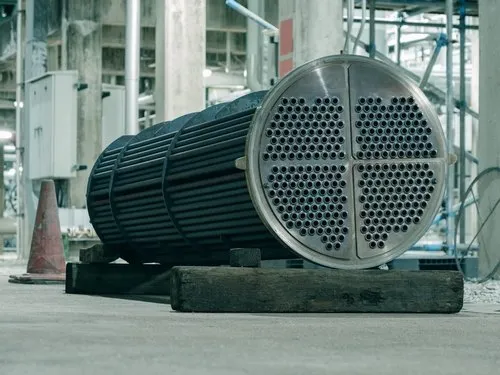WHY CHOOSE THIS TRAINING COURSE?
This course is intended to present the fundamental thermal design concepts of shell and tube heat exchangers (STHES), fabrication and industrial practices, effective parameters in heat exchanger design and operation.
During this course, trainees will be familiar with heat transfer principals, various international codes and standards, the type and components of STHES, computer–aided design methods, and effective factors in order to achieve an optimized design and well–operated heat exchangers focusing on the mechanical and practical aspects.
Several workshops are also included with various real STHE examples in order to provide a better understanding of interaction between thermal and mechanical design. Conducting thermal design using relevant software will enable the possibility of analysis and troubleshooting practices.
COURSE SYLLABUS (35 HOURS)
- Introduction to Shell and Tube Heat Exchangers (STHES) and their types based on TEMA standard
- Review of exchanger geometry and the effect of key
- component on thermal design
- Learning the criteria for thermal design based on standards
- Required process condition & physical properties input
- Analyzing output data obtained from thermal rating
WHO IS THIS TRAINING COURSE FOR?
No difference, if you’re a process engineer, a mechanical engineer who’s looking for a job, or even an undergraduate student. By participating in this course, you’ll achieve competitive advantages in your career field. The profile of participants includes:
- Process and mechanical engineers
- The fresh graduates in the field of oil, chemical, petrochemical and mechanical engineering
Prerequisites:
- General and Mechanics, appropriate Thermodynamics knowledge and of Fluid Heat Transfer.
WHAT ARE THE GOALS?
By the end of this training course, participants will be able to:
- Know the tasks of thermal designer, process engineers and other engaged departments (Mechanic, Piping, etc.),
- Check Input/output data for thermal design in the relevant software,
- Determine the correct sizing criteria,
- Design and sizing a new exchanger as a novice thermal designer,
- Analyze the performance of an existing exchanger,
- Make familiar with troubleshooting techniques and find the appropriate remedy action,
- Check vendor technical proposal and Documents
Download COURSE Catalog:
————————————————————————————
* START DATE: 17 bahman 1403
* END DATE: 18 esfand 1403
* Days: Saturdays-wednesdays
-
0 % در حال پیش رفت
-
80 % قبول شده




